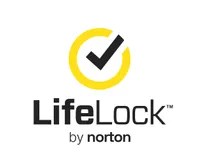Credit Cards for Kids and Teens — One Mom's Take
Getting credit cards for kids can boost their financial literacy and build their credit history. I did it with my own teens and lived to tell the tale.

Profit and prosper with the best of Kiplinger's advice on investing, taxes, retirement, personal finance and much more. Delivered daily. Enter your email in the box and click Sign Me Up.
You are now subscribed
Your newsletter sign-up was successful
Want to add more newsletters?

Delivered daily
Kiplinger Today
Profit and prosper with the best of Kiplinger's advice on investing, taxes, retirement, personal finance and much more delivered daily. Smart money moves start here.

Sent five days a week
Kiplinger A Step Ahead
Get practical help to make better financial decisions in your everyday life, from spending to savings on top deals.

Delivered daily
Kiplinger Closing Bell
Get today's biggest financial and investing headlines delivered to your inbox every day the U.S. stock market is open.

Sent twice a week
Kiplinger Adviser Intel
Financial pros across the country share best practices and fresh tactics to preserve and grow your wealth.

Delivered weekly
Kiplinger Tax Tips
Trim your federal and state tax bills with practical tax-planning and tax-cutting strategies.

Sent twice a week
Kiplinger Retirement Tips
Your twice-a-week guide to planning and enjoying a financially secure and richly rewarding retirement

Sent bimonthly.
Kiplinger Adviser Angle
Insights for advisers, wealth managers and other financial professionals.

Sent twice a week
Kiplinger Investing Weekly
Your twice-a-week roundup of promising stocks, funds, companies and industries you should consider, ones you should avoid, and why.

Sent weekly for six weeks
Kiplinger Invest for Retirement
Your step-by-step six-part series on how to invest for retirement, from devising a successful strategy to exactly which investments to choose.
We may get compensation if you visit partner links on our site. We may not cover every available offer. Our relationship with advertisers may impact how an offer is presented on our website. However, our selection of products is made independent of our relationship with advertisers
Getting credit cards for kids can age you. I should know; even though I write about credit cards for a living, the idea of sharing my carefully curated credit score with my kids was harrowing. And that's essentially what you do when you sign a child up as an authorized user on your account.
They are good kids, but recently, one told me she could feel her frontal lobe finally kicking in. That's the point, really. A child's brain doesn't finish developing, especially in terms of judgment, until around age 25.
Authorized user cards can serve as financial training wheels; they allow your child to feel the heady freedom of credit with some supervision and guidance from you, the parent with the fully-formed brain.
From just $107.88 $24.99 for Kiplinger Personal Finance
Become a smarter, better informed investor. Subscribe from just $107.88 $24.99, plus get up to 4 Special Issues

Sign up for Kiplinger’s Free Newsletters
Profit and prosper with the best of expert advice on investing, taxes, retirement, personal finance and more - straight to your e-mail.
Profit and prosper with the best of expert advice - straight to your e-mail.
I researched the risks and benefits of credit cards for kids before signing my children up as authorized users. Here's what I learned.
Generation Z has different spending habits from their Gen X or Millennial parents. Gen Z kids are decidedly digital, embracing peer-to-peer payment apps, for example.
Still, many are loyal to cash, thanks partly to TikTok influencers. But by budgeting solely with cash, they miss out on high-yield savings accounts and other banking benefits. It's a good idea to teach them the pros and cons of banking and credit products.
Many kids, however, can succumb to temptation without guidance on how to use a credit card. According to LendingTree, almost half of parents surveyed said they had caught their child using their credit card without permission. One of our kids went online and charged $100 worth of video games to our card when she was four! So, kids need to learn about credit cards from an early age.
Parents are understandably hesitant to let their children access credit cards, but having a credit card could be beneficial with the right guidance. Facilitating your child’s financial success in adulthood means teaching them about concepts like credit and responsible spending habits now.
What is an authorized user?
Adding an authorized user to your credit card allows someone (typically a family member or child) secondary access to your card, which helps them build a credit history.
Authorized users can make purchases on the credit card, however, the responsibility of making payments still falls on the primary cardholder. After adding a secondary user to the credit card, your account activity begins reporting on their credit profile which includes:
- The credit limit
- Balance
- Payment history
- Credit utilization (how much of the credit line is used)
Think of an authorized user card as a credit card with training wheels. You’ll be right behind them in case something goes wrong, and you’re teaching them to use credit responsibly while fostering independence.
The thought of granting your child access to your credit card may ignite new anxieties for some parents, but it’s important to note the backbone of this strategy is hands-on guidance and oversight.
Pros of making your child an authorized user
Adding your kid as an authorized user may pose some drawbacks, but it could give them a significant leg up when applying for their first apartment to rent, getting a loan for a used car, or even signing up for a new cellphone plan.
- Better consumer protections: As your child gets used to making purchases online and keeping track of their card, there will likely be instances of fraudulent purchases. Compared to a debit card, you won’t have to be concerned with liability for costly fraud. Under the Fair Credit Billing Act (FCBA), your fraud liability on an open-end credit account is limited to $50.
- Build credit early: Putting your teen ahead of the curve with credit habits and a good credit score pays off. A good credit score could equal lower security deposits, lower interest rates on borrowing, and even better job opportunities. Not all card issuers report the data from an under-18 authorized user to credit bureaus, so check the issuer's policy before signing up.
- Teach responsible credit use: In a 2021 TIAA Institute study, 29% of Gen Z students agreed that debt payments prevented them from addressing other financial priorities. Teaching your child how to borrow responsibly by using credit cards could help them avoid these financial issues in the future.
- Earn extra rewards: Even though you’ve likely limited their ability to spend, their purchases can still add to the credit card rewards you earn. And some credit cards will give you a bonus for adding an authorized user.
- Personal safety: I feel better knowing my kid has a surefire way to get home or buy a meal. Even if they lose their wallet, kids these days link their credit cards to payment apps, so they will always have a way to access funds in an emergency.
Cons of making your child an authorized user
Adding your child as an authorized user has advantages, but on the downside, most authorized user cards allow the user to access the primary cardholder's full credit limit.
If your child lacks financial discipline, this could result in excessive spending, and as the primary cardholder, you're responsible for paying the bill.
- You’re responsible for what they spend: If spending gets excessive and they can’t cover what they spent, you’re still stuck with the bill.
- Access to your full credit limit: Most credit cards give authorized users access to the full credit limit you’ve been approved for and there’s no way to lower it. One exception to this is American Express which lets you set the limit as low as $200.
- Fees for authorized users: Some higher-end credit cards charge an annual fee for each authorized user added. These fees can be as high as $175 per user.
- Negative credit activity hurts: If you have a secondary user on your credit card, negative actions like missing a payment or keeping high balances could hurt both of your credit scores.
- Your child may not have good security practices: A distracted kid may lose their credit card, or they may fall prey to scams more easily than adults.
Credit card companies and age requirements
There is no consistent guideline on the minimum age credit card companies accept for authorized users; each company sets its own standard. Sometimes, a credit card may charge an annual fee for adding an authorized user, but that’s not the case for most.
We’ve broken down the minimum age requirement and authorized user fees for ten major banks. These terms often change, so it's a good idea to check with a card issuer first in case any authorized user fees have changed.
Credit Card | Minimum Age | Authorized User Fee |
|---|---|---|
American Express | 13 | $195 for American Express Platinum |
Bank of America | No minimum | None |
Capital One | 18 | None |
Citibank | None except on Costco credit cards – then 18 | None |
Chase | No minimum | Varies by card; for example, $75 for Chase Sapphire Reserve |
Discover | 15 | None |
PNC Bank | 16 | None |
TD Bank | No minimum | None |
Truist | No minimum | None |
US Bank | 13 | None |
Wells Fargo | 18 | None |
Sharing your card's account
Getting your child signed up as an authorized user on one of your current cards is simple. Just decide which card you want to share, sign in to your account, and fill out a short form.
In some cases, as noted above, your account may be charged a fee, or it may be free. Here are a few things to consider when selecting which card you want to share.
Foreign transaction fees: If your teen plans to travel abroad, select a card with no foreign transaction fee. Our young teen was headed to Europe with a student travel program, so I decided to share the Chase Sapphire Preferred card with her.
My reasoning? The card has no fee for adding an authorized user, and I knew she would be using the card primarily for dining out, which gets three points per dollar. I figured we could redeem her extra points for a family vacation, and I liked that the card has excellent travel insurance.
Keeping track of 529 plan expenses: If your child is or will soon be in college, an authorized card can help you track and document expenses you can reimburse from their 529 plan.
We sent our older teen to college with an authorized card linked to my Discover It card. There was no fee for adding her to my account, and I've been able to log 529 expenses like books, food and other payments. The extra cash back is a nice side benefit.
Hook them up with a solid card: If you’re looking for a card that provides good cash back rewards for users of all ages, see our guide to the best cash back credit cards. And if you’d like to open a card that offers points or miles for travelers, see the best travel rewards credit cards.
Credit card options for kids
Adding your child as an authorized user on your own credit card can help them build credit while you maintain control over the account.
Another option is a debit card designed specifically for kids, such as the Greenlight debit card, which offers 1% cash back and allows parents to set spending limits. The Greenlight app also includes features for tracking chores, managing allowances and teaching financial responsibility.
Other kid-focused debit cards worth considering include the Acorns Early debit card (formerly the GoHenry card), which provides parental controls and financial education features.
Another option to explore is the BusyKid Visa Prepaid Spend Card, which links allowances directly to spending and savings. These cards can be a practical way to introduce kids to money management without the risk of accumulating credit card debt.
Explain credit scores
You've picked out a card to share with your child and explained how credit cards work. Is that enough preparation?
Not if they don't understand credit scores.
If they have a bank account or other easy way to check their credit score, show them how to do so. Ask them to put a monthly reminder in their calendar to check their score. Explain what a good credit score is and how to maintain one. Finally, you should also monitor their spending and credit score for the first few months just to be sure they are getting the hang of using the card responsibly.
Consider signing up for a credit monitoring service, like LifeLock, that sends alerts for any significant changes or suspicious activity. Some services also offer identity theft protection, which can be valuable as your child begins building their credit history.
Regularly reviewing these reports together can help reinforce good habits and catch potential issues early.
Protect your family's credit with LifeLock, a trusted leader in identity theft protection. LifeLock monitors personal information and alerts subscribers to potential threats, including unauthorized credit applications.
Making it worth it
I wish I could say that our family meets weekly financial check-ins, as most experts advise. “Include teenagers in family budgeting discussions to give them a real-world perspective on managing household finances," advised finance controller Manoj Kumar Vandanapu to Kiplinger. "This exposure helps them understand income, expenses and the importance of financial planning.”
Maybe your family is that organized and disciplined, but mine is a different animal altogether. So, having our kids as authorized users has given us a window into their financial habits, and we can rein in overspending when necessary.
By involving them in the application process and explaining how credit cards work, they now understand the importance of protecting their credit scores.
You could even say their frontal lobes have grown just a bit more.
Related Content
Profit and prosper with the best of Kiplinger's advice on investing, taxes, retirement, personal finance and much more. Delivered daily. Enter your email in the box and click Sign Me Up.

Carla Ayers joined Kiplinger in 2024 as the eCommerce and Personal Finance Editor. Her professional background spans both commercial and residential real estate, enriching her writing with firsthand industry insights.
Carla has worked as a personal finance and real estate writer for Rocket Mortgage, Inman and other industry publications.
She is passionate about making complex real estate and financial topics accessible to all readers. Dedicated to transparency and clarity, her ultimate goal is to help her audience make informed and confident decisions in their financial pursuits.
- Ellen B. KennedyRetirement Editor, Kiplinger.com
- Seychelle ThomasContributing Writer
-
 Quiz: Do You Know How to Avoid the "Medigap Trap?"
Quiz: Do You Know How to Avoid the "Medigap Trap?"Quiz Test your basic knowledge of the "Medigap Trap" in our quick quiz.
-
 5 Top Tax-Efficient Mutual Funds for Smarter Investing
5 Top Tax-Efficient Mutual Funds for Smarter InvestingMutual funds are many things, but "tax-friendly" usually isn't one of them. These are the exceptions.
-
 AI Sparks Existential Crisis for Software Stocks
AI Sparks Existential Crisis for Software StocksThe Kiplinger Letter Fears that SaaS subscription software could be rendered obsolete by artificial intelligence make investors jittery.
